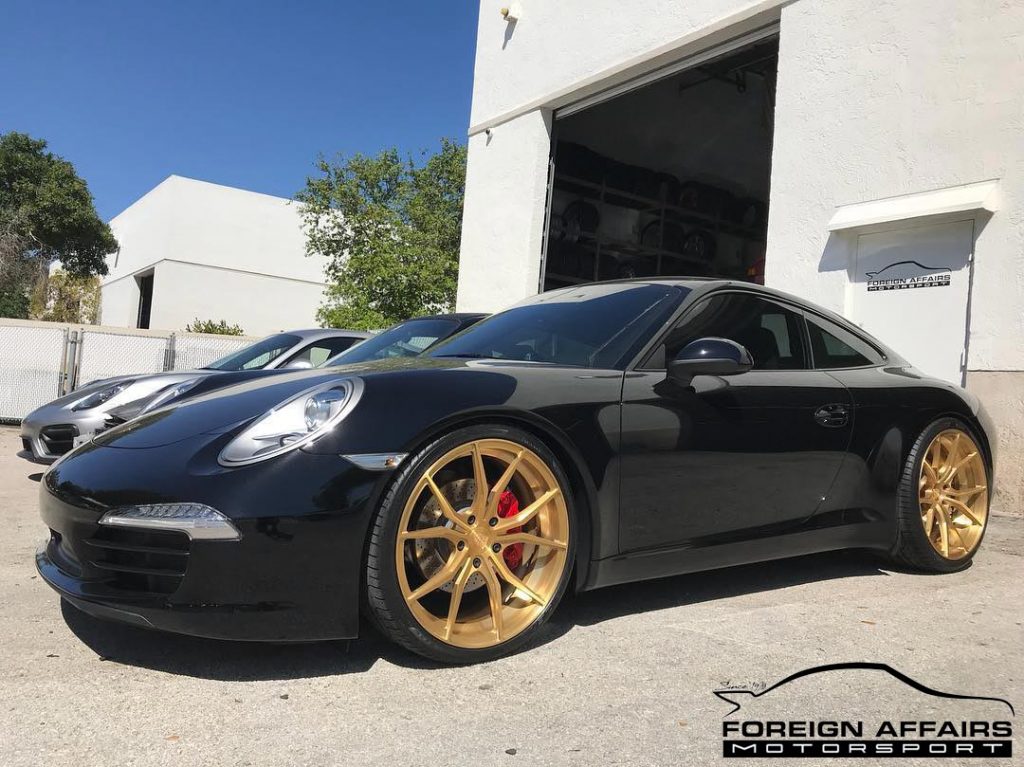Turbo vs Naturally Aspirated Maintenance at Our Porsche Service Center

Have you noticed that the majority of manufacturers, including Porsche, are moving from large displacement, naturally aspirated engines, to high pressure smaller displacement turbo engines? The reason being is to keep ahead of the ever-changing emission laws. Because of this it is important to know the differences in naturally aspirated and turbocharged engines, and the difference required in maintenance for each. Traditionally turbocharged cars require more maintenance – but let’s get down to the nuts and bolts of things in more detail.
The Difference Between Turbo & Naturally Aspirated
For the larger part, naturally aspirated engines and turbocharged engines work the same. The difference comes where in naturally aspirated engines, exhaust fumes are free to escape through the exhaust. In turbocharged engines, the exhaust fumes are sent through the turbo, to spin a turbine before escaping through the exhaust. The spinning of the turbine causes the air coming through the intake to be pressurized. Pressurizing this air, causes a significant amount of heat to be generated, air leaving the turbo can get up to temperatures of 260℉. This air is then sent through an intercooler to lower the temperature, before being sent to the intake manifold.
Due to the high-pressure air entering the engine head, turbocharged cars are made with stronger pistons and rods, have higher pressure fuel pumps and fuel injectors, and require higher grade spark plugs and better cooling systems. This high-pressure design gives you increased performance, or better fuel economy over their naturally aspirated cousins. Naturally aspirated cars benefit in that they experience lower pressure, are less prone to piston damage, and require less maintenance.
Increased Maintenance in Turbos
All turbos pull oil from the engine, in order to keep the turbine inside of the turbo well lubricated. Due to the position of the turbo, which is between the exhaust manifold and actual exhaust, the oil is exposed to higher levels of heat in the turbo than it would in engine, which prematurely stresses the oil. All this means that, depending on your driving style, turbocharged cars burn through slightly more oil, and require more frequent oil changes. As with all cars, the air filters need to be changed, though it is recommended to change air and oil filters in turbocharged cars more frequently, to prevent any debris reaching the turbo.
Common Repairs Seen at Our Porsche Service Center
One of the most common repairs on turbocharged cars is on the boost pipes. The boost pipes are the pipes that run from the turbo, to the intercooler and to the intake manifold. These can come loose over time, and if your car is equipped with silicon pipes, these can crack due to the excessive heat. Porsche makes use of a wastegate turbo. Wastegates open to let excessive exhaust gasses bypass the turbo turbine. These are known to fail, by either getting stuck in the open or the close position, creating an overboost issue, which can damage your engine, or an underboost which means that pressure is being loss. Just like radiators, intercoolers can get damaged. If fins on the intercooler get damaged, cooling efficiency is reduced, and if the intercooler is pierced by debris, pressure in the system is lost. All oil lines should be checked and maintained after 100 000 miles. Naturally aspirated Porsche have their own commonly seen repairs, which are most frequently seen in the 996 generation. The repair is due to the Intermediate Shaft bearing. The engine design does not allow for pressurized oil to reach the bearing, and has been resolved by having the bearing greased, and over time, the grease dries out causing the bearing to seize, which can lead to a full engine rebuild.
How to Extend Your Engines Lifespan
When starting from cold, keep your engine in the lower RPM range, for a few minutes to allow oil to properly circulate through your engine. In your naturally aspirated car, while it is built to rev high, it’s recommended you change gears before 6000 rpm, as this will limit wear and tear and the slightly weaker engine components. With turbocharged cars, you should always let your car idle before switching of the engine. The reason for this is because, when the engine is cut off, oil is no longer pumped to the turbo. If the turbine in the turbo is still spinning, with the lack of oil, there is high friction and can damage your turbo. if you are opposed to letting your car idle, keeping your RPMs low, usually below 3000, when you are a few minutes from your location to let your turbos turbine to stop spinning. As the turbo needs oil just as much as your engine does, it is also good practice to frequently check oil levels. The best way to ensure your Porsche has a long life, is to not miss your service intervals, and have an authorized service agent work on your vehicle.
Should you have any problems with the turbo on your Porsche, don’t delay – visit or call one of our experienced Porsche technicians at Foreign Affairs Motorsport.



